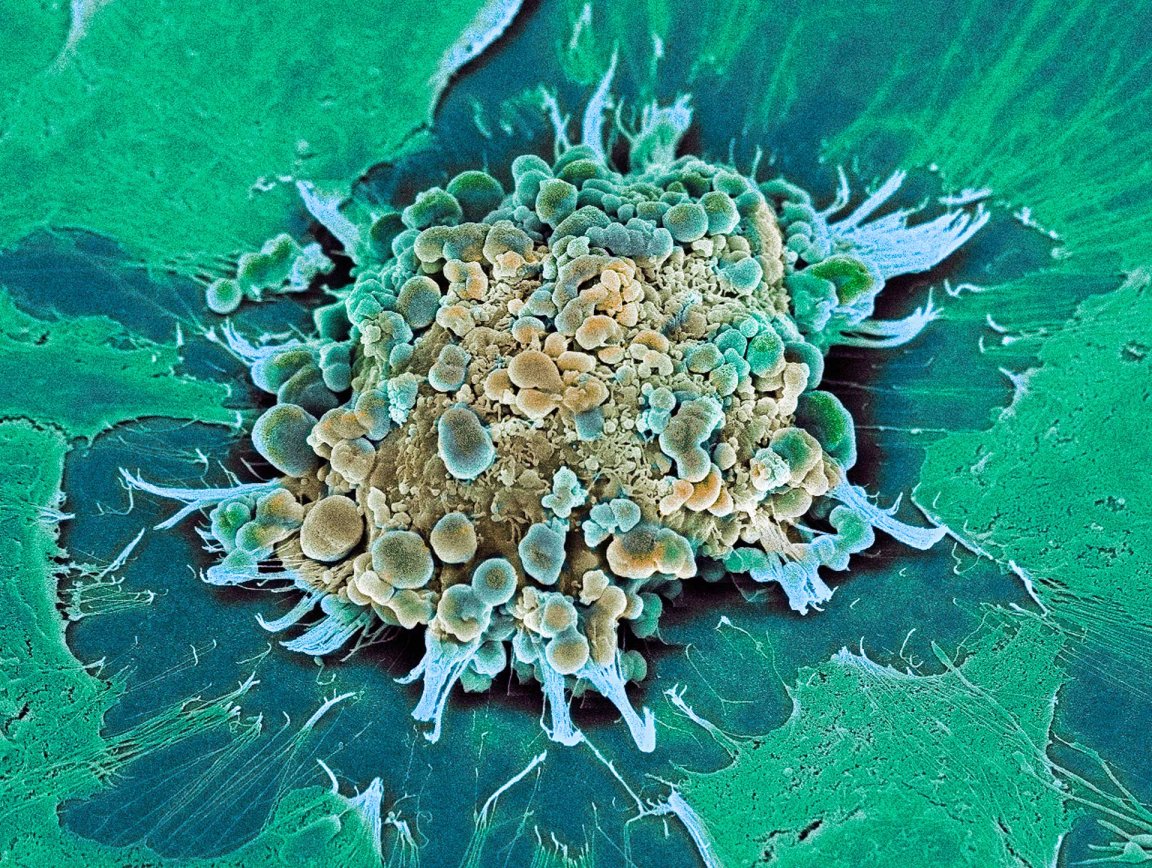
Caspase Independent Cell Death (CICD)
Scientists have discovered a new process to kill cancer cells, called Caspase Independent Cell Death (CICD), that can get rid of tumors, and decrease the risk of both side effects and recurrence. In experimental models, CICD removed tumors completely — killing all cancer cells.
Current treatments such as chemotherapy, immunotherapy, and radiation all carry risks of side effects, and they frequently fail to kill all cancer cells, which leads to recurrence. These treatments all work through apoptosis, the process of activating proteins called caspases to cause cell death.
Dr. Stephen Tait, the researcher who led the University of Glasgow team in the work on the CICD technique, told Sky News the new method “often led to complete tumor regression” and “may be a more effective way to treat cancer” than apoptosis. He added: “In essence, this mechanism has the potential to dramatically improve the effectiveness of anti-cancer therapy and reduce unwanted toxicity. Taking into consideration our findings, we propose that engaging CICD as a means of anti-cancer therapy warrants further investigation.”

Next Level Cancer Treatment
Cancer is one of the leading causes of death globally. Worldwide, there were 14 million new cases of cancer and 8.2 million cancer-related deaths in 2012. Within the next 20 years, the number of new cancer cases will rise to 22 million worldwide.
In the United States alone, an estimated 1,685,210 new cases of cancer were diagnosed in 2016, and 595,690 people died. Every year in the U.S .there are about 454.8 new cases of cancer for every 100,000 adults — and 171.2 cancer deaths per 100,000 adults. About 39.6 percent of people in the U.S. will be diagnosed with cancer at some time in their lives. As a country, the U.S.’s annual national expenditures on cancer care have been estimated to reach up to $156 billion by 2020.
Cancer is a disease that science is eager to better understand so that it can be better prevented, treated, and perhaps even one day cured. Current treatment methods are only partially effective (and are typically specific to the type of cancer, of which there are many). They also make even healthy cells sick, which further wreaks havoc on the rest of the body, not just the cancerous tumors. In contrast, when the CICD technique kills cancer cells, those cells release inflammatory proteins which alert the immune system to ramp up the body’s own natural defenses, which then attack any remaining tumor cells missed during the initial treatment.
Work remains for the researchers, as they have not yet successfully triggered the CICD response in humans. They hope that achievement will be possible as their research continues and they experiment with a wider range of cancer cells (the current work focused solely on colorectal cancer cells). Still, these initial results are very promising.
“Although many cancer treatments work by triggering apoptosis, that method sometimes fails to finish the job and instead may lead to the tumor becoming harder to treat,” spokesperson Dr. Justine Alford told Sky News. “This new research suggests there could be a better way to kill cancer cells which, as an added bonus, also activates the immune system.”